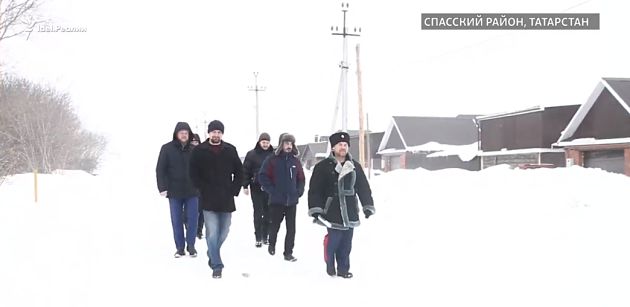The recent report by Idel.Realii about the settlement of Orthodox settlers with the support of the authorities in one of the villages of the Republic of Tatarstan could not arouse anything but ambiguous feelings among the Muslims of Russia. And it’s not only about natural religious competition, based on the belief in one’s own religion as the true one and the desire to spread it, especially in the places of its historical roots (and we are talking about a settlement near Bolgar), and the unwillingness to spread religions that believers consider distorted.
After all, as realists and pragmatists we understand very well that in a country like Russia, in the conditions of a modern multi-confessional and ethnoculturally diverse territory, the optimal model of coexistence of different religious communities is a secular state, which implies freedom of belief, preaching, assembly and association. For everyone.
But in this case, it is the latter that raises questions and confusion. Because, try as we might, we cannot imagine friendly reports in the local media, for example in the Moscow region, about the resettlement of a group of Muslims in one of their empty villages, where they build their mosque and start living with their jamaat. Well, okay, one could say that the Spassky district of Tatarstan, with a high percentage of Russians and Orthodox, is not quite the same. But we can’t imagine such a reaction to the migration of a group of Tatar Muslims to a village in a district with a historical Tatar presence in one of the neighboring regions or republics.
It is conceivable that they would simply not interfere with the local Muslims living there, although we all remember the example of the village of Belozerie in Mordovia, where even the local Muslims are not allowed to live in peace. But for a religious Muslim group to come from outside and not only be warmly welcomed by the local media and authorities, but also receive serious material support from them, as in this case – no, we can’t imagine that.
Let’s say more. In this report, the head of the local collective farm, Gulnisa Sibgatullina, boasts of the absence of national prejudices against Russians, saying that if it were Uzbeks, there might be problems, but with Russians, what problems can there be for Tatars? Let’s leave this gradation on their national conscience in this case, but let’s ask the question – can a group of Russians settle in a village in Tatarstan today and receive support from the authorities, but… as Muslims, not as Orthodox? And how long after that will local law enforcement “neutralize” them as an “extremist group” engaged in “recruiting” the local population, not to mention violating the Yarovaya Laws on missionary activity?
But what about Russian Muslims – are there many examples today of Tatarstan authorities supporting the resettlement of observant Muslims from among the Tatars to their rural areas? If there are, we would be very interested to hear about them, because we personally know nothing about them.
All this provokes a natural reaction of indignation among Muslims who ask themselves these questions about such reports. Because they appear as a glaring illustration of the inequality of religious communities in Russia and the shamelessly chauvinistic and colonial policy of the Russian Orthodox Church, which has long become the dominant church of a formally secular state that is actually a multi-confessional and multi-ethnic country.
Whenever the Islamic presence is mentioned, even in areas historically inhabited by Muslims, we immediately hear the “experts,” journalists, local authorities, and even the hierarchs of the Russian Orthodox Church, who are inspired by it, talking about “Islamization,” “Wahhabi jamaats,” and so on. However, when the real “Christianization” and the creation of their own “Jamaats” is carried out by the missionaries of the Russian Orthodox Church, it receives not only a favorable reaction from the media, but also the support of the authorities at all levels.

